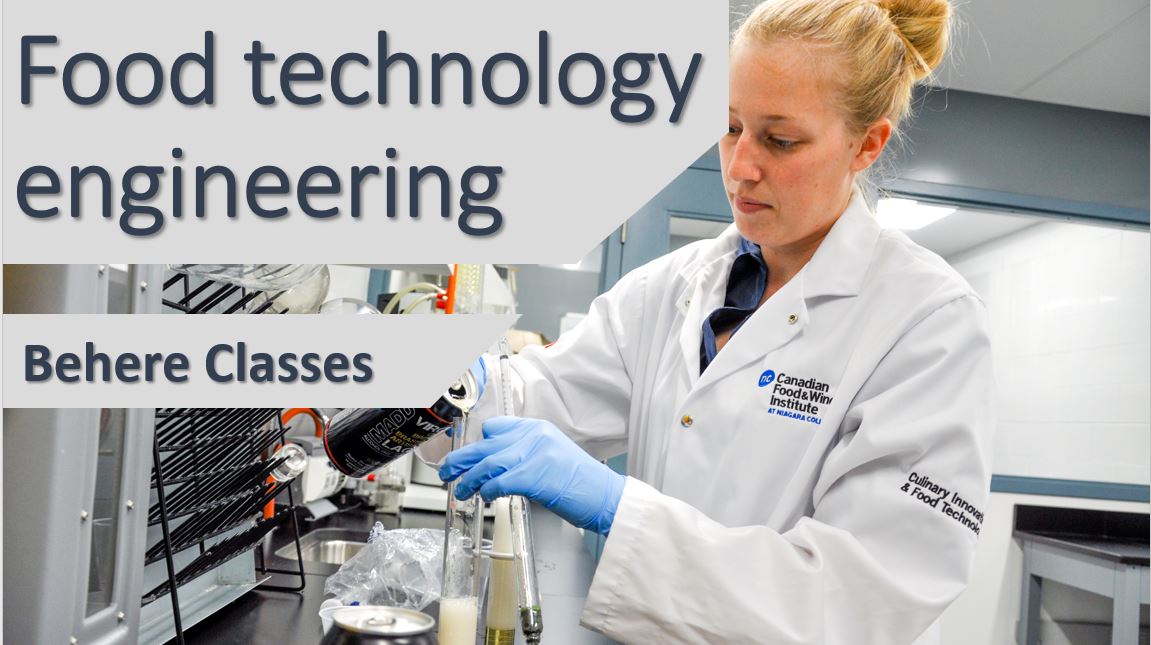Food technology Engineering
Food technology engineering encompasses the design, production, and preservation of food products, integrating engineering, microbiology, chemistry, and nutrition. Engineers in this field ensure food safety, quality, and efficiency, contributing to innovation and sustainability across food manufacturing, research, and regulatory sectors.
Duration & Course Level:
• Bachelor's Degree: Typically takes 4 years to complete.
• Master's Degree: Usually takes an additional 1-2 years beyond the bachelor's degree.
• Doctoral (Ph.D.) Degree: Can take around 3-5 years to complete after obtaining a master's degree.
Salary Package:
1. Food Technologist: $45, 000 - $80, 000 per year
2. Quality Assurance Manager: $60, 000 - $100, 000 per year
3. Food Safety Specialist: $50, 000 - $90, 000 per year
4. Research and Development Scientist: $60, 000 - $120, 000 per year
5. Product Development Manager: $70, 000 - $130, 000 per year
6. Food Process Engineer: $65, 000 - $110, 000 per year
7. Sensory Analyst: $50, 000 - $90, 000 per year
8. Regulatory Affairs Specialist: $60, 000 - $100, 000 per year
9. Food Packaging Engineer: $65, 000 - $110, 000 per year
10. Production Supervisor: $50, 000 - $90, 000 per year
These salary ranges can vary based on factors such as location, level of education, years of experience, and specific industry sector.
Job Roles:
1. Food Technologist
2. Quality Assurance Manager
3. Food Safety Specialist
4. Research and Development Scientist
5. Product Development Manager
6. Food Process Engineer
7. Sensory Analyst
8. Regulatory Affairs Specialist
9. Food Packaging Engineer
10. Production Supervisor
Education & Training Requirements:
1. Food Technologist: Bachelor's degree in food science or related field.
2. Quality Assurance Manager: Bachelor's degree in food science or related field; certifications in quality management preferred.
3. Food Safety Specialist: Bachelor's degree in food science or related field; additional training in food safety regulations.
4. Research and Development Scientist: Bachelor's degree in food science or related field; master's or Ph.D. preferred.
5. Product Development Manager: Bachelor's or master's degree in food science or related field; experience in product development.
6. Food Process Engineer: Bachelor's degree in food engineering or related field; master's preferred.
7. Sensory Analyst: Bachelor's degree in food science, psychology, or related field; sensory evaluation training.
8. Regulatory Affairs Specialist: Bachelor's degree in food science or related field; knowledge of food regulations.
9. Food Packaging Engineer: Bachelor's or master's degree in packaging engineering or related field; packaging design experience.
10. Production Supervisor: Bachelor's degree in food science, engineering, or related field; relevant experience in production management.
Innovation & Creativity:
In food technology engineering, innovation and creativity fuel progress in product development and processing. These qualities drive the creation of novel solutions to address consumer demands and global food challenges. Through inventive formulations and advanced techniques, food technologists revolutionize the industry, shaping its future direction.
Industrial Overview:
Food technology engineering blends engineering and food science to create safe, nutritious food products. It spans processing, preservation, packaging, and quality assurance, employing innovative technologies to meet consumer needs and regulatory requirements. This field drives advancements in food manufacturing, ensuring the safety and sustainability of the global food supply.
Industry/Field Future:
The future of food technology engineering is about innovative solutions to meet changing consumer needs and global demands. Advancements in processing, packaging, and preservation will boost efficiency and sustainability. Biotechnology, nanotechnology, and automation will transform manufacturing, improving productivity and reducing waste. Emphasis on food safety and smart distribution will ensure a secure and sustainable food supply.

